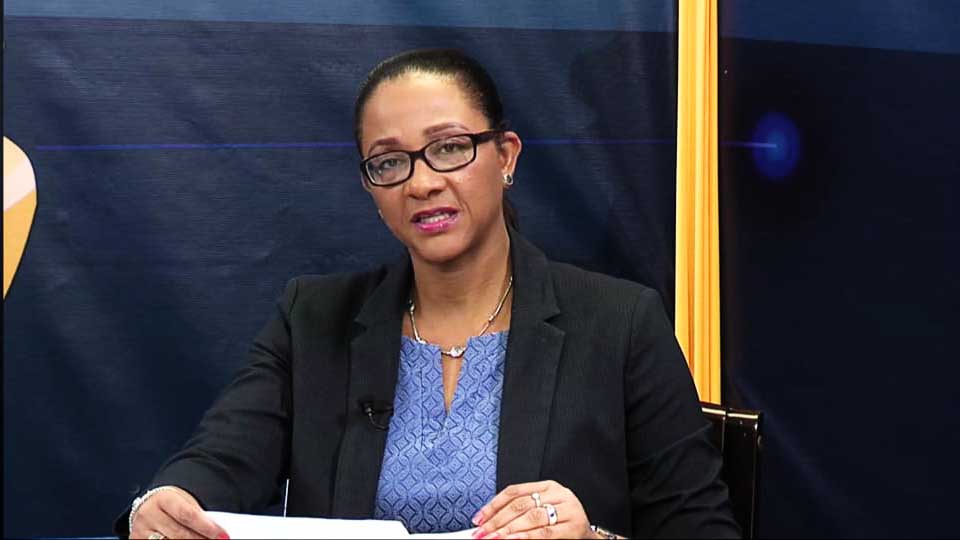As countries around the world this week begun a phased re-opening of their economies, which have been closed for weeks in some instances due to the novel coronavirus pandemic, health officials in Saint Lucia are warning citizens that they are not out of the woods yet, even though the country, as of yesterday, had not a single positive case of the virus.
Saint Lucia to date registered 18 confirmed cases of the virus however all have recuperated fully and are no longer in isolation wards.
However, this does not mean that Saint Lucians should let their guard down as COVID-19 cases are known to spike in countries where daily, less positive cases are being identified and where a flattening of the curve is currently being experienced.
Health Minister Mary Isaac and Chief Medical Officer Sharon Belmar-George both warned against complacency by Saint Lucians and at the same time encouraged adherence to the protocols put in place by the Ministry of Health for the protection of all citizens indicating that the full opening of the Saint Lucian economy depends on the nation’s obedience to these protocols.

“We are pleased to maintain a low transmission level of COVID-19 in country,” said CMO Belmar-George this week. “We remind the public that we are still at risk and must remain vigilant as the threat continues. As we progress with the phased re-opening, we must ensure that all protocols are adhered to. We recognize the efforts of a wide cross section of the population in adopting the recommended infection prevention and control measures and taking the necessary precautions when having to venture out into the public. We would like to see these measures adopted at the community level as well. We call on all community leaders, gate-keepers and heads of organizations to support the Ministry of Health in the implementation of these measures.”
Saint Lucia, as of yesterday, had conducted a total of 727 COVID-19 tests, a fraction of the over 13,000 testing kits it has stored.
“We continue to request that every individual practice the standard recommendations to prevent the spread of infection,” Belmar-George advised. “These include regular hand washing with soap and water or alcohol-based hand sanitizer where soap and water is not available, covering your mouth and nose with disposable tissues or clothing when coughing and sneezing, avoiding close contact with anyone showing symptoms of respiratory illness such as coughing and sneezing, wearing your home made or cloth mask whenever venturing out from home, maintaining a six-foot distance when in public even while wearing a mask, seeking medical attention if you have symptoms suggestive of respiratory illness either during or after travel, and refraining from touching items unless you intend to buy them when grocery shopping and otherwise.”
Health Minister Mary Isaac for her part noted that there were concerns over a stigma being created around nurses on the frontlines of the COVID-19 pandemic.
![Image of Health and Wellness Minister, Mary Isaac [PHOTO: PhotoMike]](https://www.thevoiceslu.com/wp-content/uploads/2017/07/Mary-Isaac.jpg)
Meanwhile minibus drivers plying the Vieux Fort to Castries route and those on the Soufriere to Castries route are beginning to flex their muscles as the zoning of the country has prevented them from going about their usual routes, an action that has effectively halted their daily income.
Some of the affected drivers are speaking out, loudly, calling on Transport Minister Guy Joseph to keep his promises of meeting with them.
Meanwhile on the international front, the World Health Organization (WHO) has warned that the coronavirus “may never go away”.
Speaking at a briefing on Wednesday, WHO Emergencies Director Dr Mike Ryan warned against trying to predict when the virus would disappear.
He added that even if a vaccine is found, controlling the virus will require a “massive effort”.
As of yesterday, worldwide the number of persons recorded to have positively contacted the virus stood close to the five million mark while over 300,000 people are reported to have died from it.
“It is important to put this on the table: this virus may become just another endemic virus in our communities, and this virus may never go away,” Dr Ryan told the virtual press conference from Geneva.






![Attendees at the UHC logo and website launch [Photo credit: GOSL]](https://thevoiceslu.com/wp-content/uploads/2026/02/Attendees-at-the-UHC-logo-and-website-launch-380x250.jpg)






![Remnants of an alleged drug boat blown up in a lethal strike by the U.S. military last week surfaced off Canouan on Saturday [Photo credit : St Vincent Times]](https://thevoiceslu.com/wp-content/uploads/2026/02/Remnants-of-an-alleged-drug-boat-blown-up-380x250.jpg)
